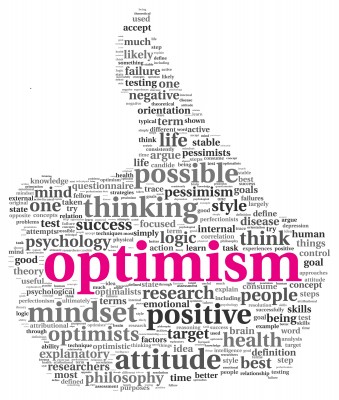Your cart is currently empty!

On Being a Search Engine Optimist
Yesterday, I went to visit Dr. Tom Hapgood’s web design class. They’re designing a website for a nonprofit organization. I’m writing the content, and we’re all doing it out of the goodness of our hearts (and in the students’ case, for a grade). I was of course pleased to be able to help out, and I’m looking forward to seeing their designs. The class was in the art building, so I have high hopes for creativity and innovation, and I hear they’re strict about their code, too.
I was also interested to see how they handled the client interview.
I had just come from a client interview myself. I sat down with my new client and had a little heart-to-heart with her about her website. We talked about what she wanted it to do for her business, and what kind of budget she had in mind. We looked at the performance of her current website, checked out the navigation on her site in comparison with some well-designed sites and thought about the experience her customers had when they visited the old site and what we wanted them to experience when they visited the new one. I showed her the code for her current site and explained a bit about the metalanguage and how the search engines work. We discussed possibilities at different price points and what they’d do for her.
In the classroom, filthy lucre didn’t enter the conversation at all, except when I mentioned the whole donations and development aspect. That made the interview quite different from my usual interviews.
The other thing that was different from my client interviews was that we hardly discussed search at all.
To me, design is mostly about search and conversions. Usability is key, of course, and I hope I always think of the humans who use a site. I can also appreciate the art — my own website is a thing of beauty, and therefore a joy forever — even though I leave that part to the artists. But mostly I’m all about ROI. So inevitably I brought search up at one point in yesterday’s class meeting.
A clever student had asked what parts of the site should be accessible for updates.
Search engines like updates, so I also like updates. If I have access to a client’s site and a little free time, I’ll go in and find something to update. It doesn’t really matter whether it needs updating. The point is to say, “Yoo hoo! Search engines! Something going on over here! Come and look!” So from my point of view, anything that can be updated is good.
I was expressing this to the class. Dr. Hapgood has just been reading about search engine optimization or, as he prefers to call it, search engine management.
“There are search engine optimists,” he said, and then frowned. The term sounded a little odd. “People who do search engine optimizing.”
I loved that. Mostly we call ourselves SEOs or SEO professionals, but I think I’d like to be a search engine optimist.
The entire class is being taught proper, standards compliant coding. They had been having a discussion of site architecture, complete with a flow chart and boxes on the white board. Dr. Hapgood mentioned punctuation. All good signs for the future of web design, I’m sure you’ll agree.
The sight of all these bright young people training to be good at web design made me feel quite optimistic.
But I don’t want to replace optimization with optimism. I was able to assure the students quite truthfully that a well-written, well-designed website has an advantage for search. However, we have to admit to ourselves that search engines aren’t human, and therefore can’t appreciate beauty, creativity, or the hard work designers put into their creations.
We have to understand the behavior of both the search engines and the human searchers. Then, with our websites both beautifully designed and skillfully optimized, we can be justifiably optimistic about the future.
by
Tags:
Comments
One response to “On Being a Search Engine Optimist”
It is one of the most common mistake made by the companies, that they don’t care about the design, way of design and content placement. A good website design can surely enhance the progress of your website popularity approaching you to shine on the first page of the most prominent search engines like google, yahoo, and windows live. The latest advancements in the scanning algorithms of search engines hinder your effort of getting a high page rank if website coding doesn’t comply with the standards.
These are the things which are ignored while selecting a designing company. And hence people end up getting their website designed by cheaper and less – efficient web designer. This not only wastes your money, but may deteriorate the reputation of the company. I was in the same misconception and ended up selecting a cheaper designing company. And to all worse things happening in my life, my website was not able to come up on the search list because of many problems including website design which was made by changing a template here and there. Afterwards, I hired a web designing and marketing company named http://www.medicalwebexperts.com who reconstructed my website thoroughly. They met all the standards for my web design and made it google friendly. And after a period of 4 to 5 months of web marketing, I was able to see the increase in genuine traffic, which was quite better than getting fake traffic. The progress seems to show results positively in my income. This is how I was able to grab the internet market in my field.

Leave a Reply